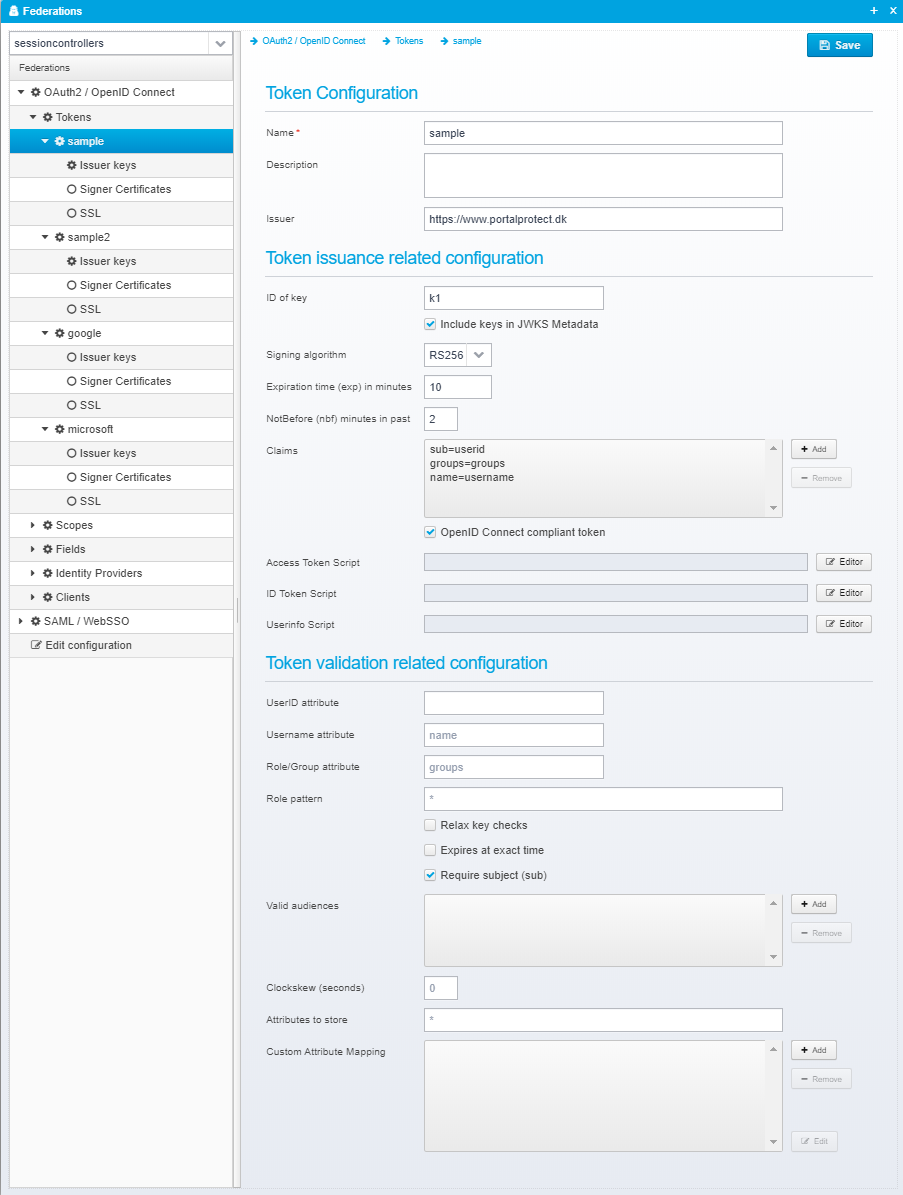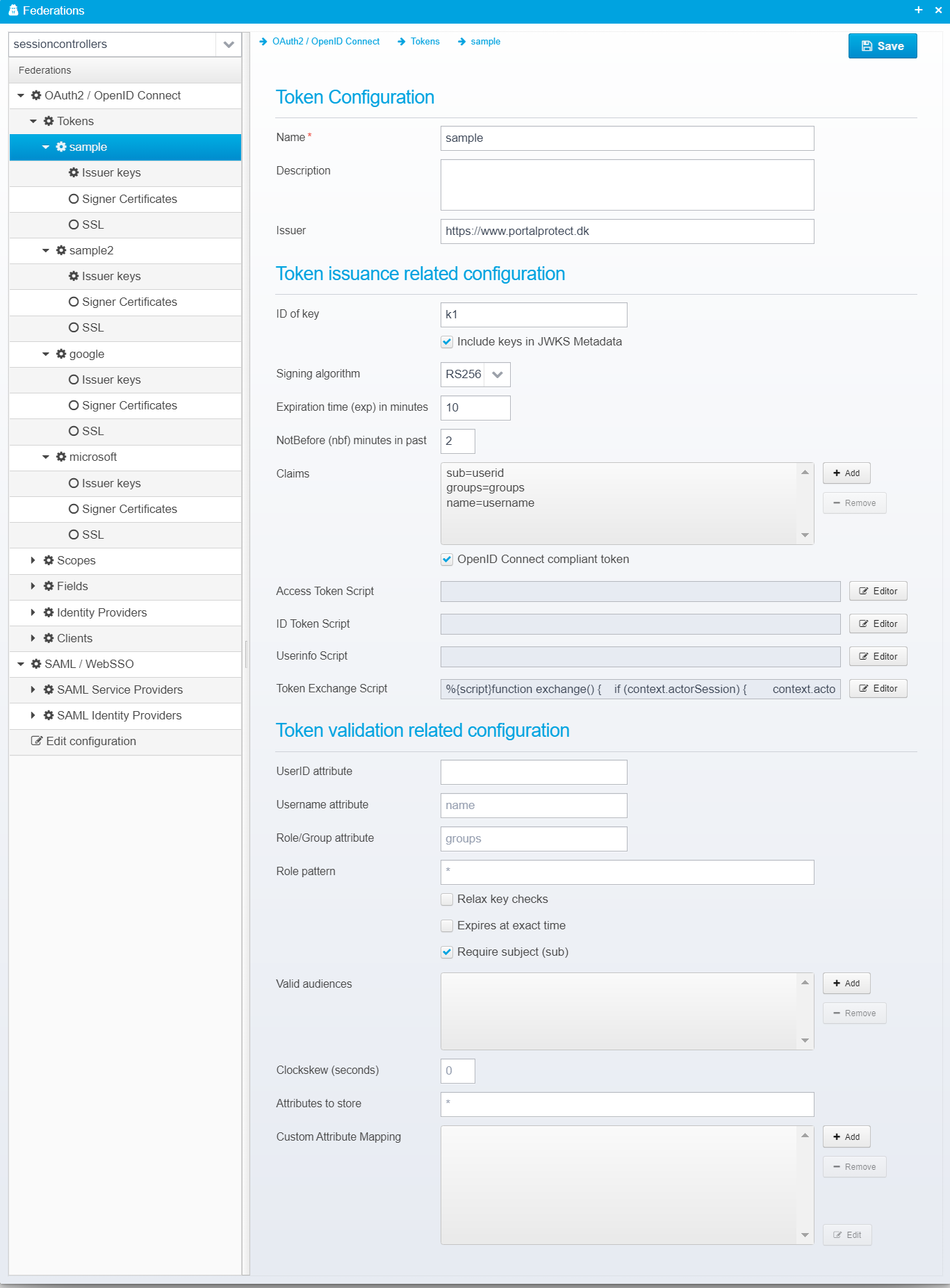...
- Implicit Flow
- Authorization Code Flow
- Authorization Code with PKCE Extension
- Hybrid Flow
- Refresh Token
- Client Credentials Flow
- Resource Owner Password Credentials
- Token Introspection / Revocation
- Token Exchange
For each scope, you can configure which attributes are added to the various types of tokens, ID Token, Access Token and Userinfo JSON.
...
For each individual token, you can specify the following setttings:
Configuration for each token is stored as a JSON Object within the tokens JSON array within the federations JSON.
...
| Tip | |||||||
|---|---|---|---|---|---|---|---|
| |||||||
For the 3 script types above, see the code completion in the editor for detailed information about which variables are available to the script. On high level, this is:
The script can return a modified token / JSON userinfo as a string. Example:
|
Token Exchange Script
This script is called whenever a token exchange is requested.
Default: None
JSON key is script.tokenexchange
| Tip | ||
|---|---|---|
Javascript, Groovy or Python code is executed to process the token exchange input, add validation or provide extra information for use when the access token is generated.
Variables
If the subject_token was found and recognized as an earlier issued token, the context.session is populated with the contents of the session. If not, the token is available in context.session.ticket and you can parse it and populate the session with the results. If context.session.userid is empty when the script returns, it is assumed that the parsing failed and an error will be sent back to the client informing that the token was not valid. If an actor token was provided and recognized, the session of the actor is populated with information - if not recognized you can find the token (along with any other input parameters from the request in the input java.util.Properties object. In this script, you can modify the session contents before the final access token is generated. The access token will be generated by default as a copy of the incoming subject_token but with an attribute "act" added with the subject of the actor token in the "sub" field, and the client_id in the "client_id" field of the "act" object. In the access token generation script, you get a chance to modify the properties after the token is generated before it gets signed - the token exchange script allows you to modify the session context before the resulting access token is generated.
|
Token validation related configuration
...

